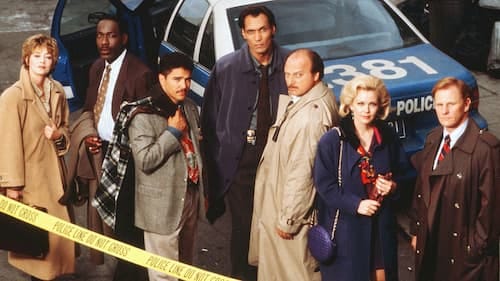123. The Motive Matters
I loved the show NYPD Blue. Watched every single episode. In order. Twice.
That episode when Bobby Simone (Jimmy Smits’ character) dies…. I’m telling you, I cried like a baby. It’s a huge heartbreaker. I later learned that episode is listed as one of the greatest TV episodes in history, which makes sense, cause it’s awesome.
One thing I learned from NYPD Blue, and every other crime show, crime movie, crime book and crime novella, is that a clear motive is critical towards knowing who actually committed the crime.
Seems obvious, right? A motive matters.
How many mystery books have you read where, when you’re halfway through, you realize that there are multiple suspects each with a motive. That’s what makes it a good mystery - when multiple people have a motive for committing the crime, any of them can be guilty. It only matters when there is a motive.
But what if I were to tell you that motive doesn’t matter.
Let’s try it: Motive doesn’t matter.
Do you feel any different?
In the real world, motive, in fact, does not matter. Motive has nothing to do with the judicial system.
The Court of Hollywood Opinion
Lawyers will bring up motive in their court cases because, well, we the people have seen too many episodes of NYPD Blue. We’ve seen too many Hollywood movies and read too many mystery books.
In the end, jury members want a good story. They want everything tied up in a bow, ideally within 58 minutes (including three commercial breaks). Jury members want to know that there was a reason - an intention - for the crime.
But it’s not intention that puts people in jail.
The only things that matter are the facts. And if you’re ever a member of a jury, you’ll hear the judge reminding you of that.
Not motive, just facts.
The Road of Good Intentions
You may know a person or two at your company who works really hard and wants to do everything right for the customers or employees or whomever they are working hard for. But in the end, the way they communicate and what they accomplish (or don’t) actually has more of a negative impact on business.
In business, we sometimes let people continue with poor behavior because they have good intentions.
But businesses don’t grow by good intentions.
Businesses grow by getting stuff done. Getting the right stuff done.
Just like our judicial system, judging others success and productivity has nothing to do with motive or intentions. In the end, the only things that matters are the facts.
Let’s take sales people as an example, because they are so easy to mess with.
I once had a sales person working for me who was incredibly nice. He worked hard trying to close business. He communicated with a lot of prospects, sent out a lot of emails and made a lot of calls. He had good intentions. But good intentions don’t determine his success. Closing business does. And the way he communicated just didn’t close any business.
He didn’t last long in the company, because facts matter more than intentions. (I thinkI already said that, didn’t I?)
So tell me, how effective were you in meeting your goals?
Did you adhere to your timeline?
Are you collaborating well with others?
It’s ok to be judged by facts in the workplace. And it’s ok to measure others effectiveness by the same. If there’s one legacy that Bobby Simone left us, perhaps that’s it: facts matter.
Now I gotta go, I’m beginning to tear up again.





You forgot timing...or maybe you didn't